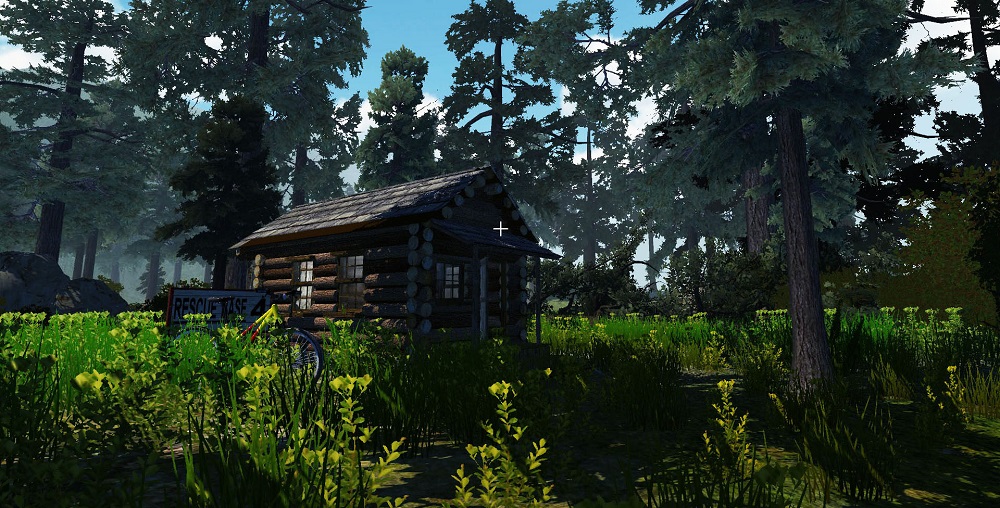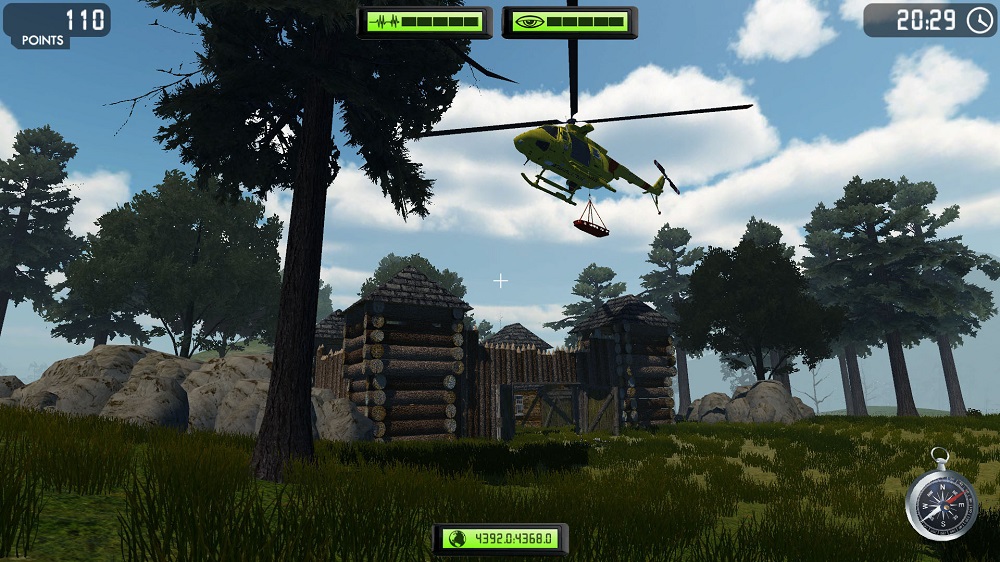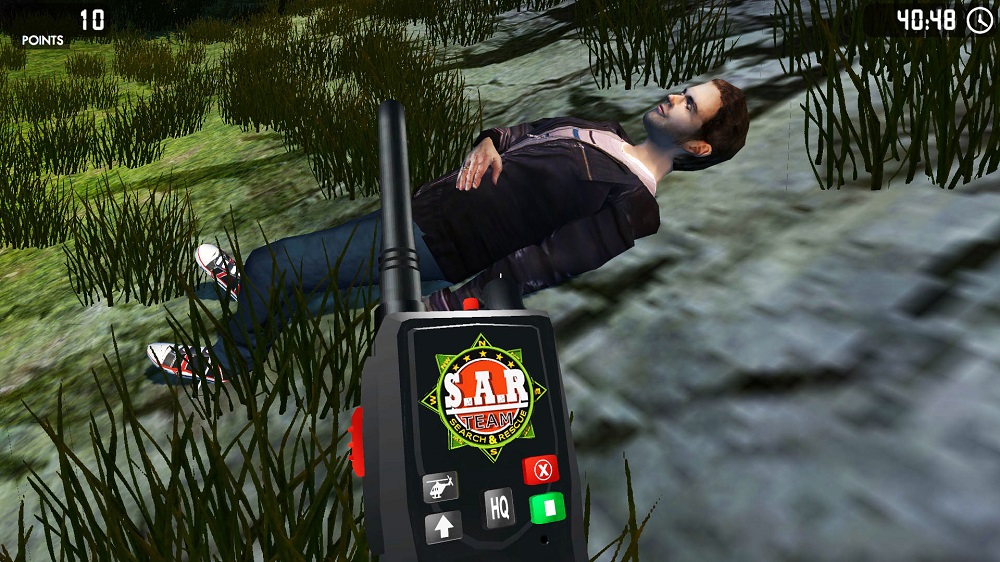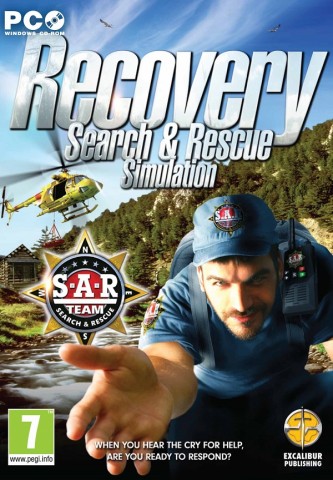A search and rescue ranger of a national park lives a heroic life, saving innocent individuals, keeping their park safe and even clean! So its not very surprising when Excalibur Publishing brought Recovery: Search and Rescue Simulation to the gaming world, but will the life of a search and rescue ranger be adequately simulated?
Much like the career of a policeman, a Search and Rescue team presents a brilliant premise for a game, one day may see you rescuing an inflatable crocodile in a river, the next, you may be calling in a helicopter to save a stranded person, the possibilities are endless, and as soon as it was announced we were excited for the responsibility of a whole park with roaming animals, babbling brooks and the gentle breeze. But much like the heroic music you'll encounter on the front end, the potential of Recovery: Search and Rescue Simulation seemed to slip further and further away the longer I played it.

Recovery: Search and Rescue Simulation is a mission based experience, you are a ranger working in a large national park and it's your duty to do as your boss tells you, this could be anything from cleaning up after ignorant campers, tracking down lost persons or tracking animals with the little information you are provided with. The information generally starts off with a small search radius to begin your enquiries before tracking clues to your next hotspot, this is all accomplished via a map to which you have easy access, the only trouble is the search radius can be quite large so you need to keep your eyes peeled, though unfortunately sometimes that is not merely enough; a large percentage of the park is covered in rather tall grass, and considering the view you have you appear to be a very short ranger, so you'll often find yourself missing vital clues on your rescue which gets inherently frustrating especially because each mission gives you a time limit to stick to.
A great potential of the game was its inclusion of a push bike as a vital form of transportation, the humble bicycle doesn't get featured often in games. Unfortunately its simulation in Recovery: Search and Rescue Simulation as a mode of transport is bested by that of Courier Crisis or even Grand Theft Auto: San Andreas, which is disappointing to say the least. The main problem with the control of the bicycle is that when travelling it feels more like you are simple zooming around the park with no real sense that you are in contact with the ground, the way it feels you may as well be flying. This is made even more awkward with your view on the bicycle which just doesn't feel natural and is far too low.
To create an element of risk, Recovery: Search and Rescue Simulation places the idea of survival at the forefront of your mind, physical exertion will drain your energy, and activity when you're exhausted will lead to a drop in your health which ultimately leads to you having to retire from a mission. This is the trickiest part of the game, and in order to survive you must prepare supplies to boost your energy and ensure you don't find yourself caught short in the wilderness. Supplies can be purchased from any of the four rescue bases in the park, however you will be limited with how much you can carry, and you can only purchase goods if you have points, but these are given away fairly generously when you successfully complete a mission, so managing your energy consumption isn't too difficult when the strategies available to you become clear.

However, there is a catch! Because the basis of the game is very strange; with a large park at your fingertips the last thing you want to do is walk to the points of interest that you are provided with, after all you'll probably not be given enough time to get there via walking, which means you've really no option but to use your bicycle in most, if not all situations. However using your bicycle comes at a cost, whilst walking around the park aimlessly will slowly drain your energy, cycling appears to be the most strenuous exercise known to man, and understandably so as your character appears to cycle as though they are on steroids, however this means at only halfway towards your objective you'll have already drained most of your energy which causes you to rely on your survival supplies often in a rather unrealistic fashion.
One very big, and unfortunately obvious problem with Recovery: Search and Rescue Simulation is it feels almost devoid of life, this is a national park, full of campsites, animals and life! Sure you'll hear a rustle through the trees occasionally, and you may just spot birds or animals on your travels, but the land, the foliage, even the water exudes this haunting feel of emptiness and loneliness, no matter what you do, or how far you travel the unenthusiastic repetition of the same trees and grass shrubs doesn't make a living, breathing park, granted the graphical capabilities of Recovery: Search and Rescue Simulation is not up to par with AAA open world games but even low key titles like The Hunter have achieved a level of belief.

Recovery: Search and Rescue Simulation could have been so much more, but its strange survival system and oddly simulated bicycle control, not to mention its hauntingly lifeless park holds it back from something of greatness.
Recovery: Search and Rescue Simulation is available now from all good retailers that still stock Windows PC, you can also purchase it from the Excalibur Publishing online store.

